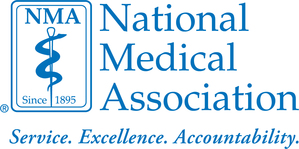National Medical Association and National Black Nurses Association Releases Consensus Report on Respiratory Syncytial Virus (RSV)
SILVER SPRING, Md., Oct. 27 /PRNewswire-USNewswire/ -- Today, the National Medical Association (NMA) and the National Black Nurses Association (NBNA) released a consensus report on RSV. Concerned that recent clinical guidelines published by the American Academy of Pediatrics Committee of Infectious Disease (AAP/COID) may leave some infants unprotected from RSV, the NMA/NBNA RSV Consensus Panel recommended that additional research be conducted to ensure that physicians provide the maximum protection to infants and children at risk of RSV. RSV is directly responsible for the hospitalization of up to 125,000 infants on an annual basis.
The United States Centers for Disease Control and Prevention estimates that approximately 14,000 persons in the United States die each year as a result of RSV. In addition, despite its status as one of the most common viral infections, RSV is not yet a reportable disease. In response to the magnitude of RSV, the newly released consensus report makes several priority recommendations. The report recommends: that the Centers for Disease Control and Prevention make RSV a reportable disease, that equal treatment be provided to infant children and other at-risk populations independent of their insurance status, and that physicians and other public health professionals participate in current ICD-10 coding discussions in order to guarantee that infants with RSV are properly diagnosed.
"The recent proposed change to the FDA approved dosage may have an unintended consequence of disproportionately affecting African American infants. Not only are African Americans over-represented among infants who are premature and/or low birth weight, they are also over-represented within the ranks of almost all other RSV risk factors," says Debra A. Toney, PhD, RN, FAAN, President, National Black Nurses Association.
While there is no vaccine for this disease, the possibility of hospitalization can be reduced in vulnerable, high risk populations such as premature and/or low birth weight babies by providing prophylactic doses of an agent known as Palivizumab. The recommended dosage was recently reduced for some at risk infants. However, the NMA/NBNA consensus panel recommends that more research is needed to confirm when fewer doses will achieve the same effect as a full season of prophylaxis. "Indeed, it is critical that these recommendations be implemented immediately," adds Willarda V. Edwards, M.D., M.B.A., Chair of the Consensus Panel and Immediate Past President of the National Medical Association.
To download a copy of the executive summary of the report visit www.NMAnet.org
National Medical Association
Founded in 1895, the National Medical Association is the nation's oldest and largest medical association representing the interests of more than 50,000 African-American physicians and their patients. The NMA repeatedly advocates for policies that would assure equitable and quality health care for all people.
National Black Nurses Association
The National Black Nurses Association was organized in 1971 under the leadership of Dr. Lauranne Sams, former Dean and Professor of Nursing, School of Nursing, Tuskegee University, Tuskegee, Alabama. NBNA is a non-profit organization incorporated on September 2, 1972, in the State of Ohio. NBNA, a worldwide organization, represents 150,000 African American registered nurses, licensed vocational/ practical nurses, nursing students and retired nurses from the United States, Eastern Caribbean, and Africa. It has 72 chartered chapters in 35 states.
SOURCE National Medical Association
WANT YOUR COMPANY'S NEWS FEATURED ON PRNEWSWIRE.COM?
Newsrooms &
Influencers
Digital Media
Outlets
Journalists
Opted In





Share this article